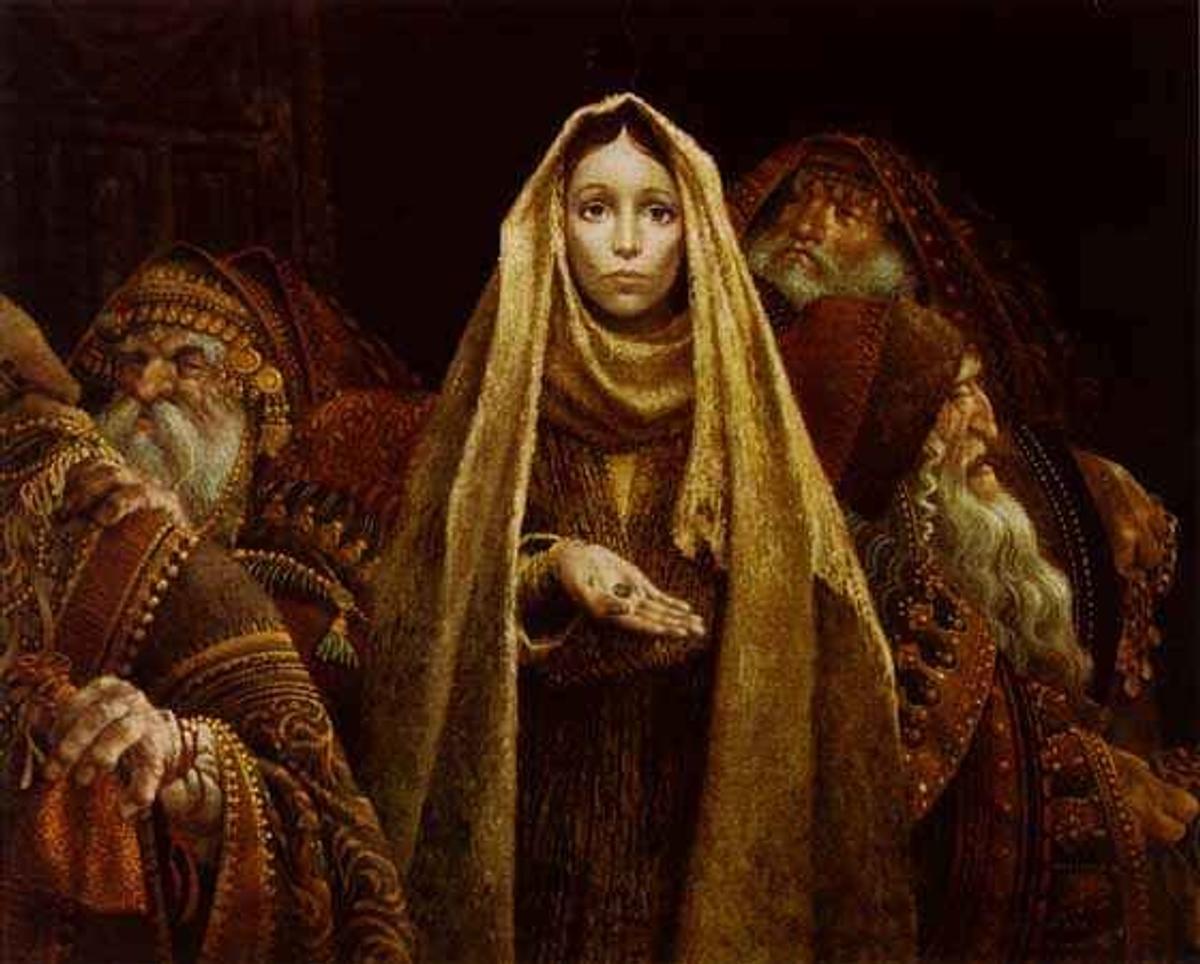Message from the Chaplain

The Widow's Mite
A poor widow came and put in two small copper coins, which are worth a penny. Then he called his disciples and said to them, “Truly I tell you, this poor widow has put in more than all those who are contributing to the treasury. For all of them have contributed out of their abundance; but she out of her poverty has put in everything she had, all she had to live on.” (Mark 12:41-44)
I recall that in my Biblical studies, this unnamed widow was spoken of as a transitory section of the text to highlight Jesus’ own offering of ‘all he had’. That is, the widow is praise for giving “all that she had”, and this praise leads the reader to a greater appreciation of Jesus’ greater, ultimate self-sacrifice of his own life for sake of others. While this sort of analysis suits the theological ethics that scholars draw from Mark’s gospel (qualities of self-giving, generosity and purity of intent, etc.), it does, I feel, an injustice to the woman herself. I wonder what her actions are about and why a widow would perform such an act.
It would well be true that the woman’s actions are an act of genuine piety, free from political agenda. She gave to the treasury of the Temple (the holiest place of Israel; the House of God) all that she has as a contribution to upkeep of the religious institution. Perhaps she gave her coins so that others may also come to know God as she has herself knows God.
The widow’s actions may also be viewed as a symbol of the corruption of religious authority of the day. Support of this interpretation is interesting. Immediately before this story of the widow, Jesus attacks the scribes and their official establishment. “Beware of the scribes,” he says. “They devour widows’ houses and for the sake of appearance say long prayers” (12:39-40). Interestingly too, the verse that follows Jesus’ observation that “she out of her poverty has put in everything she had, all she had to live on,” reads “As Jesus was leaving the Temple… [he says], not a single stone here will be left in its place; every one of them will be thrown down” (13:1-2). This context suggests that scribes led the poor widow to making offerings with all she had, even though she was poor. This is a different viewpoint.
The story of the widow’s offering becomes evidence to the oppression of the scribes toward the poor and vulnerable; the very people that God commands them to protect (see Exodus 22:22-24). Hers is a sad story of the exploitation of those who should be protected. The widow’s offering, then, is not an example to follow, but a situation to avoid and Jesus’ comment about her is not praise but a lament and a condemnation of the scribes and the nature of the religious establishment. Jesus is exposing wrongdoing and abuse.
This interpretation reminds me of times of our own national shame: indigenous dispossession of land, refugee children on Nauru, child abuse in religious and civil institutions, banking royal commission. So how do I conclude this? Perhaps with the words of Jesus to his disciples: “Everyone will hate you because of me. But whoever holds out to the end will be saved.” Hold on to the true and the good.
Mr Phil Worrad
Chaplain

